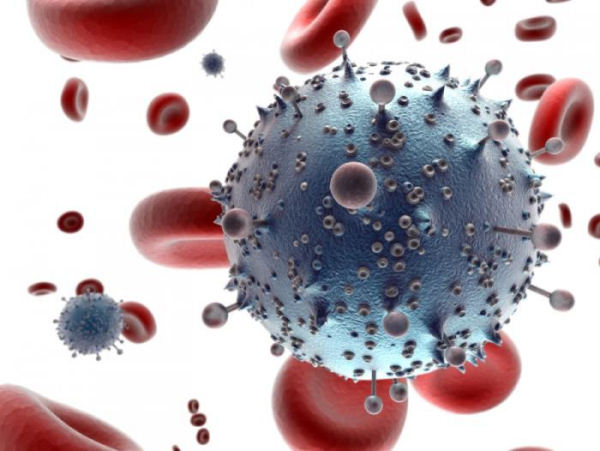
Combination antiretroviral therapy (cART) suppresses HIV replication and significantly slows the progression of disease, enabling HIV+ individuals to effectively manage infection for long periods. One of the manifestations of HIV infection is chronic inflammation in the gut and damage to the gastrointestinal barrier, which is thought to contribute to immune system activation. Elevated immune system activation is associated with increased risk of non-AIDS-associated disease and death in HIV+ individuals.
In this issue of JCI Insight, a research team led by Jacob Estes of the AIDS and Cancer Virus Program at the Frederick National Laboratory for Cancer Research reports on the impact of cART on gut inflammation in acutely infected HIV patients. This group of patients is particularly unique as infection was identified on average 16 days after initial HIV infection. By examining colon biopsies taken from acute and chronic infection phases, this study provides an unprecedented look at the impact of early cART on the gut. The researchers found that all infected individuals already had reduced CD4+ T cells within the gut and showed signs of significant gut inflammation at the time infection, demonstrating that gastrointestinal tract damage occurs very early after infection. Subsequent analysis showed that early cART blunts gastrointestinal inflammation and immune activation in acutely infected HIV patients but did not restore CD4+ T cell counts in the gut in the long-term. These findings suggest that earlier cART may be beneficial to the health of HIV-infected individuals, but also indicates that CD4+ T cell depletion in the gut remains intractable with current therapy.
###
TITLE:
Impact of early cART in the gut during acute HIV infection
AUTHOR CONTACT:
Jacob D. Estes
Frederick National Laboratory for Cancer Research
Email: [email protected]
View this article at: http://insight.jci.org/articles/view/87065?key=e1219ccabdb85754753a
JCI Insight is the newest publication from the American Society of Clinical Investigation, a nonprofit honor organization of physician-scientists. JCI Insight is dedicated to publishing a range of translational biomedical research with an emphasis on rigorous experimental methods and data reporting. All articles published in JCI Insight are freely available at the time of publication. For more information about JCI Insight and all of the latest articles go to http://www.insight.jci.org.
Media Contact
Corinne Williams
[email protected]
@jclinicalinvest
http://www.jci.org
The post Early antiretroviral therapy reduces gut inflammation in HIV+ individuals appeared first on Scienmag.





